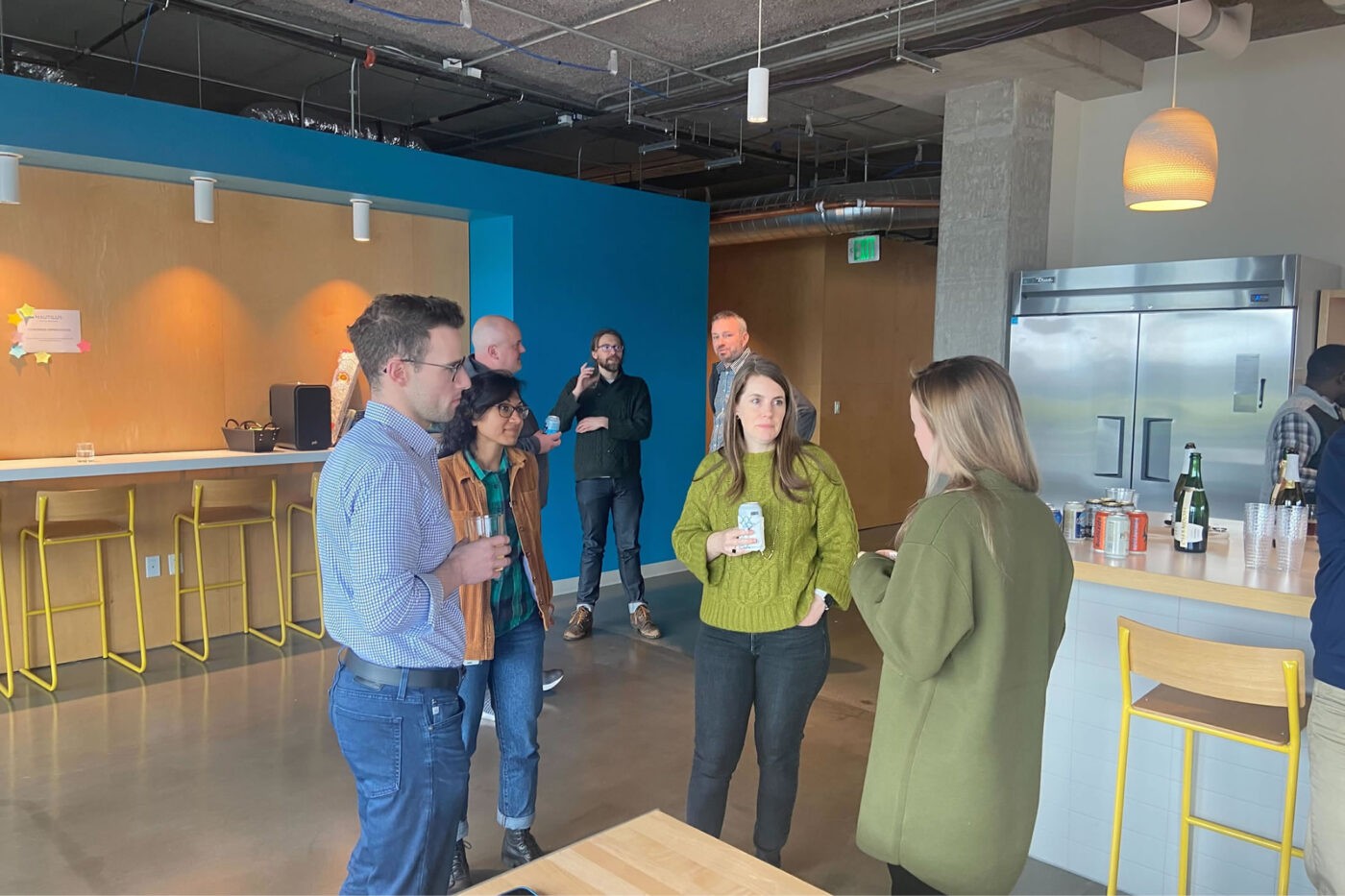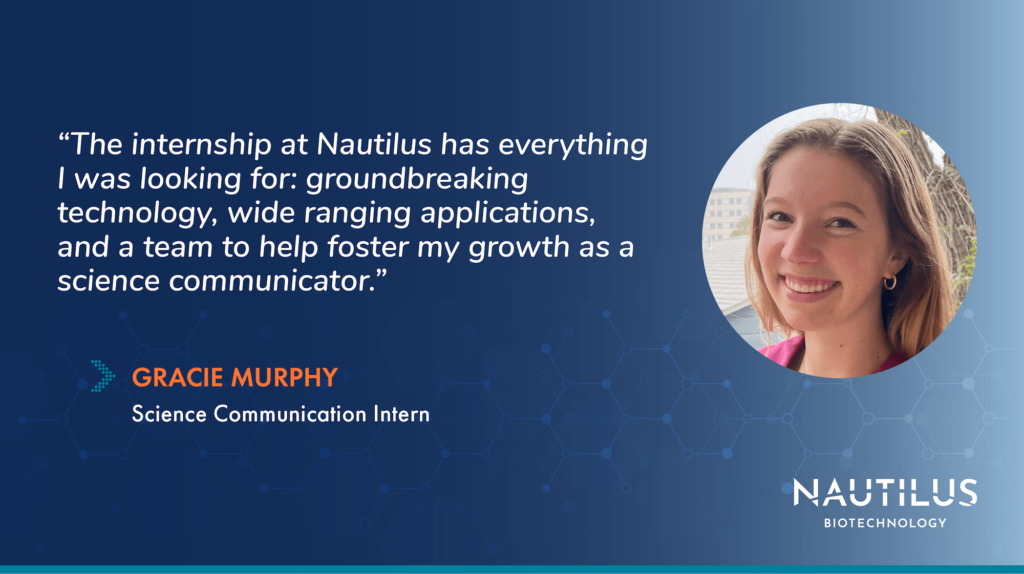
The importance of a good story – Gracie Murphy on why she joined Nautilus as a Science Communication Intern


In a recent webinar, Nautilus Chief Scientist Parag Mallick describes the Nautilus Proteome Analysis Platform as a game of protein Guess Who. It turns out that analogizing complicated biochemical and machine learning strategies to a children’s game works perfectly. There is something incredibly compelling about watching an expert explain complex topics in a way that makes sense to both their peers within the field and strangers in the audience. This understated branch of science, science communication, is a powerful tool that Nautilus has learned to wield with ease.
As I begin my internship focusing on science communication, I am excited to be along for the ride as Nautilus simultaneously revolutionizes what we know about proteomics and finds creative ways to bring their platform to the public. In this post, I will be exploring how my interest in science communication led me to join Nautilus and how I plan to utilize this experience in the future.
A passion for science communication that began in the lab
I would describe my undergraduate experience as unique. Unlike most college students, only around half of my learning was done in the lecture hall, and I certainly handled more mice than the average young adult. Most days were spent in the lab, researching how our gut microbiome influences responses to stress. I joined the lab when I was a sophomore in college. I had never touched a pipette, but I had a good attitude, a willingness to learn, and was fully vaccinated (a big deal for the Spring of 2021). While the late nights and weekend mornings spent in lab were grueling, I knew the research I was doing could profoundly change the way people viewed something as ubiquitous as stress.
As I created posters and presented my findings, I realized that what I enjoy most about my research is bringing it to others in a way that makes them care about it too. I carefully chose my words and graphics, boiling down hours of research into an accessible form. Outside the lab, I took the usual gauntlet of biologies, chemistries, and biochemistries, but also began taking writing classes specifically focusing on science communication. I realized that my interest in science communication extended beyond my own research and into other realms of science and technology. The opportunity to complete my writing minor with an internship and a well-timed introduction to VP of Corporate Marketing and Communications, Chris Blessington, gave me the chance to take this interest into the world of biotechnology and proteomics.
The internship at Nautilus has everything I was looking for: groundbreaking technology, wide ranging applications, and a team to help foster my growth as a science communicator. I will be working with Chris Blessington and Tyler Ford, Head of Content Strategy, to help populate the Nautilus Blog with applications of proteomics and interviews with the people making the proteomics revolution possible. I am still finding where I fit within this well-equipped team, but I am eager to help bring attention to current proteomics developments and future applications of the Nautilus platform.
A biotech internship as a path to a law degree
In a few months I will be graduating from UCLA with a degree in Microbiology, Immunology, and Molecular Genetics, a minor in Professional Writing, and a disjointed work history at farmers markets, elementary schools, a pharmaceutical research lab, and now a biotech company. The common thread has always been the opportunity to learn something new and share it with others.
Following the end of my undergraduate education and my internship at Nautilus, I will be pursuing law school in the Bay Area. A career in law will give me exposure to the wide-ranging developments in science and technology while also allowing me to explore the world of science communication that I have been drawn too. It will take a skilled science communicator to help someone translate the full potential and implications of their vision into the legal language of patents and contracts. I am hopeful that my time at Nautilus will better prepare me for this role as a link between complex science and the rest of the world. At the very least, I will have a front row seat to the development of a technology that could revolutionize research and healthcare.
For now, I am diving headfirst into the realm of proteomics, and I cannot wait to share what I find.
MORE ARTICLES
